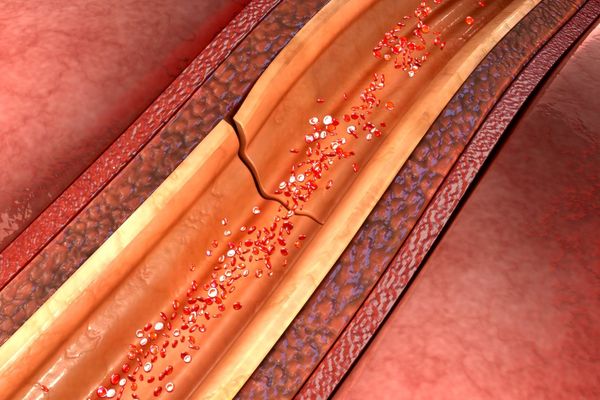When was the last time you listened to your heart? Or better yet, had your healthcare provider (HCP) tune in?
Heart valve disease is on the rise, and catching it early can be a matter of life or death. Studies show as many as half of the people with a type of advanced valve disease called severe symptomatic aortic stenosis die within two years without treatment.
This is especially important to note for women and people assigned female at birth. New research shows symptoms of heart valve disease can be less obvious in women and women are more likely to experience delays in treatment compared to men.
The good news is that many heart valve problems can be identified by a healthcare provider listening to the heart with a stethoscope. And there are risk factors to consider, because not everyone shows symptoms of heart valve disease.
Here’s more on what you need to know and how to get screened for heart valve disease.
What is heart valve disease?
Heart valve disease is when one or more of your heart valves stop working correctly, which makes it harder for your heart to pump blood through your body.
Your heart has four valves: aortic, mitral, pulmonary and tricuspid. Each one has thin flaps called leaflets that open and shut with your heartbeat. The valves make sure blood is flowing in the right direction and they also stop blood from flowing backward. If one or more of the valves are leaky (can’t close all the way), too narrow or can’t open at all, your heart has to work harder to pump the blood out. Without treatment, heart valve disease can lead to serious complications including stroke, heart failure and death.
Read: FAQs: What Women Need to Know About Cardiovascular Disease >>
What are the types of heart valve disease?
There are different types of heart valve disease, and more than one valve can be affected.
The three types of heart valve disease are:
Stenosis: When the heart valve tissue becomes stiff and causes the valve opening to narrow, which means less blood can flow through.
Regurgitation: Also known as a leaky valve, this is when the leaflets don’t close all the way and blood leaks backward across the valve.
Atresia: When a heart valve doesn’t form correctly before birth. This is usually diagnosed in infancy.
What causes heart valve problems?
A common cause of valve problems is age. As we get older, calcium deposits can build up and cause the valve flaps to become thicker and stiff, which affects blood flow. Valves can also break down over time.
Heart valve problems can also form before you’re even born or because of injury or illness, such as infective endocarditis and rheumatic fever.
What are heart valve disease symptoms?
Heart valve disease can be sneaky because it can have no symptoms or symptoms that happen out of the blue.
For many people, symptoms get worse over time, so they’re less noticeable. For example, you may start to feel winded during a regular walk around the block or feel out of breath when you’re laying down.
Symptoms of heart valve disease can include:
- Pain in the chest
- Tightness or pressure in the chest
- Dizziness
- Shortness of breath
- Rapid heartbeat
- Fainting
- Difficulty sitting up
- Difficulty sleeping
- Difficulty walking short distances
- Swollen ankles or feet
What are the risk factors for heart valve disease?
Age is a big risk factor for heart valve disease. Everyone over 65 should be screened for valve problems. In addition to age, risk factors for heart valve disease can include:
- Having a heart murmur
- Having a heart defect, such as bicuspid aortic valve or mitral valve prolapse
- A history of heart problems, such as heart attack, heart failure or arrhythmia
- A previous heart valve condition from birth (congenital heart defects)
- A history of rheumatic fever or infective endocarditis
- A history of radiation therapy to the chest
- A family history of valve disease
Read: The Intersection of Heart Disease, Diabetes and Stroke >>
If you have questions about your risk for valve disease, consider filling out an assessment sheet and bringing it with you to see your healthcare provider (HCP).
How can I get screened for heart valve disease?
To get screened for heart valve disease, ask your HCP to listen to your heart for a murmur — it’s typically a whooshing sound instead of a beat.
If your HCP hears a murmur or if you have any of the risk factors associated with heart valve disease, ask for an echocardiogram, which is an ultrasound of the heart and can help diagnose heart valve disease.
What is the treatment for heart valve disease?
Heart valve disease treatment options vary depending on the severity of the disease, but can include medication and surgery to repair or replace the valve. If you have symptoms or have been diagnosed with heart valve disease, talk to your HCP about your options and what’s best for you and your heart.
This educational resource was created with support from Edwards Lifesciences, a HealthyWomen Corporate Advisory Council member.






